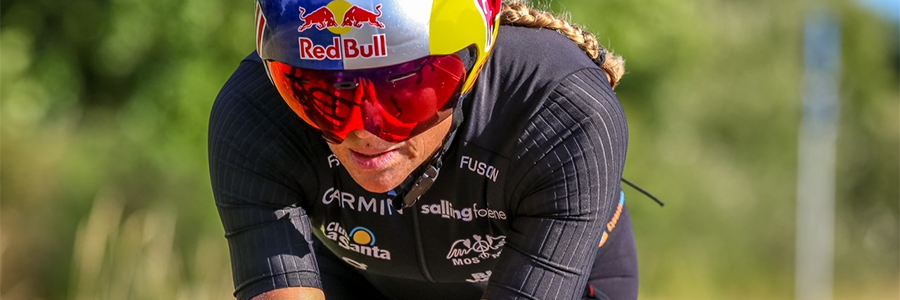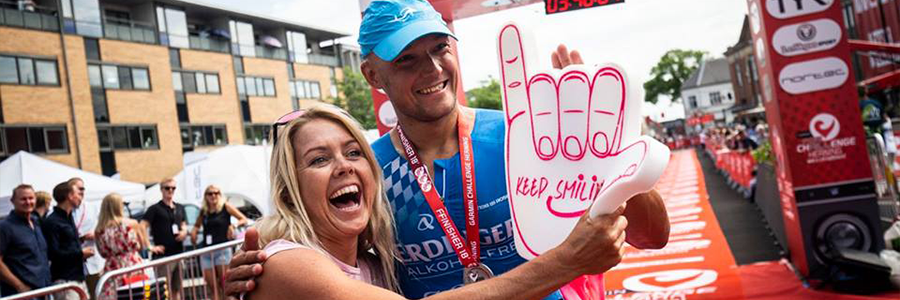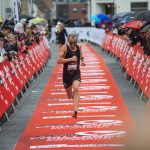Did you miss some tips from our professional athletes?
Don’t worry, we got you!

Training Tips CAMILLA
#1 How do you prevent over-training?
You need to know your body. Many people mistakenly believe that exercise is more important than anything else, but both sleep and diet are just as important as a run, etc. I talk to many who get up at 04.00 in the morning to have time to do all their workout, but then they forget to sleep enough or have time to make the right food. You must remember it is like a “triangle” to perform optimally: sleep, diet, and exercise. They are equally important.
#2 What is your best tip to someone who wants to start with a triathlon?
Remember to have some fun! If you want to train for your first triathlon there is nothing more important than to have some fun. Don’t be nervous and worried about your time the first time you race – it will be better next time. Get all the fun out of it as possible.
#3 What is the best tip you have ever received?
It is a really difficult question, and I can not name just one tip that has been the best for me. But I received a really good tip from my former trainer: Do not think about the others – think about yourself. I used a lot of energy in a race to think about the other athletes and when they would catch up on me etc. Instead, I now try to focus and use all my energy on myself. It makes sense.
#4 What is the worst tip you have ever received?
It is impossible to answer and luckily, I have not received one single tip that was so awful, I remember it now. But I think the worst advice I generally get comes from people who do not know me. I have just given birth to my baby son, but I also trained when I was pregnant, and many people said to me: Don’t do it. But in fact, it would be far worse for my body not to exercise – because this is what it is used to. These advices are maybe the worst ones because of course I only do what I know is good for both me and my child.
#5 Do you always follow your training plan? if no, when or why don’t you?
Right now, I do not have a training plan because I train myself and I have been doing that for over a year. I feel like I know myself so well right now and I know what I need to train to perform better. But in times where I had a training plan, I always follow it 100 % – and that is both a good and a bad thing. Good because it pushes you on days where you maybe aren’t that motivated, but bad because sometimes you listen more to the plan than to your body. The last part can be hard when you have a trainer abroad who doesn’t see you on the days where your body is low on energy and I am probably not always good to say if I need a break – I just want to do as planned.
#6 How do you use your Garmin watch to help your training?
I use it a lot, and especially during my pregnancy, the watch gave me some good advice and training suggestions for what I could do today. It has followed my training for so long so it is also kind of an expert of mine. I think it was and is both fun and motivating, especially when I do not follow a training plan. Then I can easily follow the watch’s suggestions instead of just running what I just had in mind. This also applies to my cycling computer.
#7 How do you stay motivated when you don’t want to train?
My conscience takes care of that. When I know I want to be the best and I always want to be better tomorrow than I am today, I cannot stay on the couch. And then it gives me energy on the days when I am not motivated, I also know about the endorphins which will come after a workout. You get high – and you get even higher if the desire was not there when you left the couch, and you still reach the finish line.
#8 Do you train transitions (overgange/skift)? If yes, how do you do it?
No, I do not, because I do not feel it is necessary, but once a week I train cycling and running right after each other. First, I bicycle a long ride, and then I run for 30-45 minutes afterward. In that way you can say I train transitions, but not as in a race.

Training Tips MICHELLE
#1 How do you adapt your training with COVID-19?
I try to enjoy the process as much as possible – it is necessary when you do not know when you can race again. I try to focus on today and where I am right now, and then I set myself some short-term goals which I can achieve over the weeks (and celebrate). At the same time, I try to find the good things about COVID-19; that you have more time with your family, etc. But it is – sorry – damn hard to keep finding the good things about the epidemic.
#2 What do you recommend doing when the swimming pools are closed?
Take it easy and make sure to do some exercises which strengthen your “swimming muscles”. They will open soon again (I hope), and maybe we are even so lucky that the temperature even manages to rise, so we can swim outside. And a bit of good advice: Be careful when the swimming pools open again. Don’t get too eager so it will bring you injury instead of happiness.
#3 How do you fit/organize your training sessions and keep a family life?
It can be difficult, but it’s all about structure, planning, and co-ownership in the family. Every Sunday we sit down and plan the week and it gives us the opportunity to align our expectations. It also helps your bad conscience which can hit you when you go to training and “leave” the family at home – because both you and your husband/wife know you just do what you both have planned and agreed.
#4 Do you adapt your training regarding your daily form?
Both yes and no. I listen very carefully to my body and I am fully aware if I choose to train easier than planned. But I am also fully aware that it can make my brain thinking: “Today we can just skip some part of the hard work” if I am a little tired but actually would be able to push myself. On these days I really try to do all as planned.
#5 How do you prevent injuries?
The most important is to listen to your body and daring to do as it says even if it might ruin your plan. And then it is so much about getting the right diet and nutrition you need. It is so important that you get the right things to eat both before and after a workout.
#6 How do you plan your nutrition?
I am very proactive about my nutrition. When I plan my workouts, I also plan my nutrition to fit the plan. In that way I do not have to think about what my body needs all the time – because it is already in my schedule. It takes much less time to plan (or get it planned by an online coach etc ?) than it takes to think about it every single time. If you do not plan it, it is so easy to eat something wrong.
#7 What are your best tips for a beginner triathlete?
Take one step at a time. It sounds cliché, but it’s the best way to reach the goal. Take each discipline separately and do also break every discipline into small pieces. In that way, it is much easier to see the progress you do.
#8 You always say keep smiling – why? And is it always possible?
No, it is not always possible, and I also have days where I try to convince myself that it is a good saying. But it is! It is about your mindset and how much it can do for you. When you smile, you emit a lot of positive endorphins and it gives you an extra kick of energy. Try it: Smile to everyone you pass by today and feel what their feedback (smile) does to you. Or try it on a run when it hurts the most and you just want to stop. It gives you energy. So, when everything is very difficult, I smile, because it makes it all a little easier.




